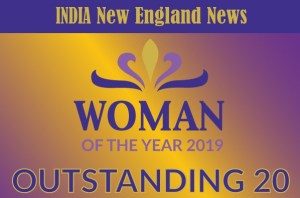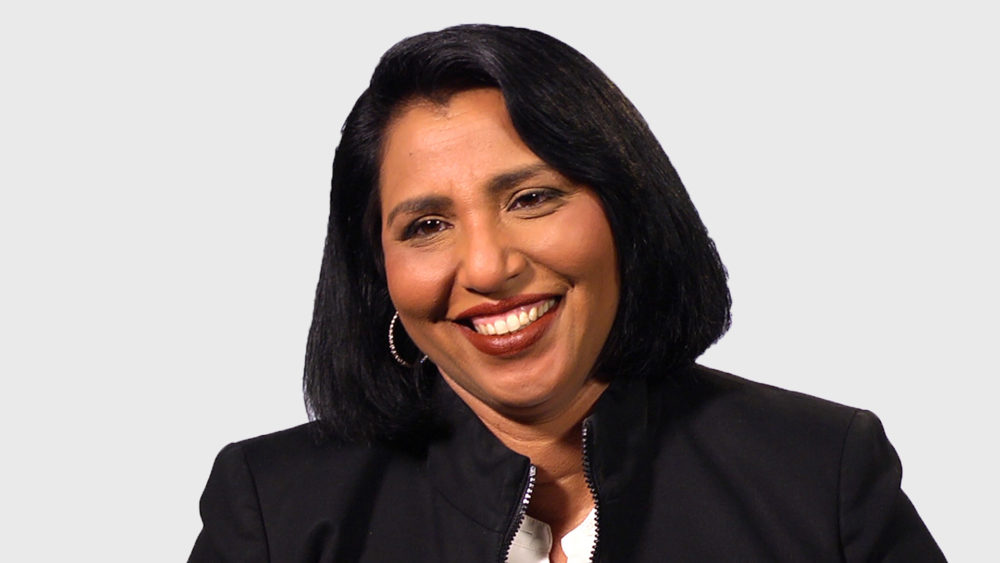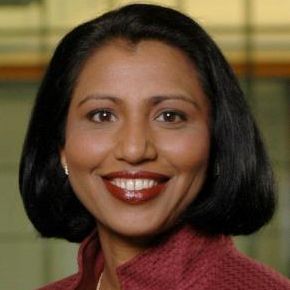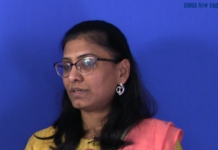BOSTON—Pam Randhawa is CEO and Founder of Empiriko, a biotech company focused on developing R&D technologies for drug discovery and home-based point-of-care devices for personalized patient treatment.
In addition to running and managing Empiriko, Ms. Randhawa works with a number non-profit organizations.
 She serves on the Board of Directors of the Massachusetts Life Sciences Center, a state investment agency responsible for $1 billion fund to support life sciences innovation and create STEM related jobs in Massachusetts. She also serves on the Board of Directors of the Massachusetts Biotech Technology Council and a member of the World Economic Forum’s Global Future Council on Biotechnology.
She serves on the Board of Directors of the Massachusetts Life Sciences Center, a state investment agency responsible for $1 billion fund to support life sciences innovation and create STEM related jobs in Massachusetts. She also serves on the Board of Directors of the Massachusetts Biotech Technology Council and a member of the World Economic Forum’s Global Future Council on Biotechnology.
She chairs NSF/NIJ Industrial Advisory Board of Center for Advanced Research in Forensic Science and a member of the NIH review panel for SBIR/STTR Commercialization Readiness Pilot Program. Ms. Randhawa is a member of the Silent Spring Institute’s Leadership Council which studies the links between the environment and women’s health, with a focus on breast cancer. In addition, she serves on the Economic Development Planning Council for the State of MA and Women’s Workforce Council, an initiative of Boston Mayor Marty Walsh to eliminate the gender wage gap. She serves as a judge for the Harvard Business School’s New Venture Competition and provides mentorship to startups and young professionals.

Ms. Randhawa holds a Bachelors Degree in economics from the University of Rajasthan, India, and received a Masters Degree from the Heinz School of Public Policy and Management at Carnegie-Mellon University.
Here is a Q/A with Ms. Randhawa:
INDIA New England News: Please tell our readers about your work and what you enjoy most about it?
Pam Randhawa: During the early part of my career, I was working on a project related to patient outcomes for a class of therapies. It was clear that one size does not fit all and there is a variability across individuals due to genetics, physiological and environmental factors. I started looking into technologies that can help identify these variations at an individual level. Unfortunately, I did not find any solutions that were practical in real world and cost effective. I immediately knew that I wanted to pursue this idea.
Almost two decades later, I founded Empiriko to help researchers understand early drug metabolism and toxicity during the drug discovery process and to develop technology for personalized patient care. I have been working with my team to develop our synthetic liver technology for drug discovery and next generation diagnostics platform focused on treating chronic disease patients at home more effectively in real-time. Our synthetic liver technology includes chemical compounds that mimics the biological function of the liver to predict drug metabolism and toxicity. This technology is pushing the boundaries of chemistry since this type of work is typically done using biological systems.
I am also excited about the work we are doing to develop the next generation of diagnostic platform – Personalized Metabolic Fingerprint™ device. This technology includes miniaturization of instruments, biochips, miniaturized assays, novel biomarkers and computational models to assess disease severity, dose response, therapeutic effectiveness and toxicity. The most interesting part I enjoy about my work is that convergence of multiple scientific disciplines, engineering and business comes together in creating a disruptive technology that have the potential to help improve and save millions of lives.
INE: To what charitable, community and professional groups do you belong and why?
PR: I serve on the board of Massachusetts Biotech Technology Council — focused on advancing Massachusetts’ leadership in the life sciences and improve patient lives. I am a member of the World Economic Forum’s Global Future Council on Biotechnology with a mission to promote technologies and policy opportunities which improve health and healthcare systems through biotech solutions.
I am a council member for the Silence Spring institution which studies the links between the environment and women’s health, with a focus on breast cancer. I am also on Women’s Workforce Council, an initiative of Boston Mayor Marty Walsh to eliminate the gender wage gap. These organizations are helping to improve the lives of millions of people and have enabled me to not only contribute to the field but also learn from others.
INE: What are your hobbies and interests?
PR: I enjoy everything in my life, and I do not focus on specific hobbies or interests. I love spending time with my family, friends and two havanese dogs. I enjoy my work and sometimes enjoy doing nothing at all. I like meeting with young students and professionals and help them where possible. I enjoy creating food art and elaborate flower arrangements to keep things interesting and beautiful.
INE: In what way you feel you have most positively influenced or served the local community or your company/organization and professional field?
PR: I have spent many years in the healthcare/life sciences industry developing technologies that enabled researchers, clinicians, payors and policy makers to improve access, quality and reduce costs of healthcare. During my early career, I led the state wide taskforce for the Health Status of Ohioans subcommittee for the State Health Plan in Ohio. I wrote the actual chapters and lobbied to include the health status of Asian Americans and Pacific Islanders as a special section since this population was previously lumped into “other” category.
This enabled Ohio Department of Health to understand the healthcare needs of this population and worked with the legislatures to allocate appropriate funding to address critical healthcare needs of this population. At present, I am working on personalized and precision medicine technologies that can treat patients with chronic diseases at home more effectively. Imagine a scenario where disease detection, progression/regression and therapeutic effectiveness and toxicity is measured in real-time for an individual patient and physician is able to provide early intervention? We hope to succeed in this venture which has the potential to change how medicine is practiced around the world.
INE: What is the most pressing issue that you believe women are facing today?
PR: While women make up the majority of the workforce, we still have very small representation among the fortune 500 company’s leadership and corporate boards in addition to the significant gender pay gap. Despite the research showing that the increase of women in leadership is helping businesses to grow in unprecedented ways, we are still seeing slow upward movement for woman. The longer it takes to close this gap, the longer world’s future economic growth, workforce and productivity will be left at stake.
INE: What is your rare talent that people don’t know about?
PR: I am not sure if I would call it a rare talent, but I am a card counter and played blackjack professionally with the MIT Blackjack team (basis for “Move 21”). I can carry a full conversation with people while counting cards. I have been asked by most casinos in the US not to play because I am considered a skilled player even though counting cards and using your brain is not illegal.
INE: What are your favorite books?
PR: Moby-Dick by Herman Melville, Schindler’s List by Thomas Keneally and How Doctors Think by Jerome Groopman.
INE: What are your favorite quotes that motivate you or make you smile?
PR: “Honesty is the first chapter in the book of wisdom.” – Thomas Jefferson
“A leader is one who knows the way, goes the way, and shows the way.” – John C. Maxwell
“Wise men speak because they have something to say; Fools because they have to say something.” – Plato
“The only true wisdom is in knowing you know nothing.” – Socrates
“If you cannot do great things, do small things in a great way.” – Napoleon Hill
INE: Who inspires you the most?
PR: My late mother inspires me the most. My entrepreneurial spirit came from my mother who believed in hard work, continuous learning and pushing the envelope. I remember the days when I was seven years old — I sometimes would accompany my mother to her meetings where she would negotiate agriculture land deals. She used to be the only woman in the room, and she had no fear of negotiating hard while remaining reasonable to the other party. She had a great sense of humor and she used it skillfully to not only make everyone happy but also used it in business negotiations to achieve success during contentious discussions. I learned from my mother to be fearless and confident in professional and personal life.
INE: Who is the one person you would like to meet and why?
PR: I would love to meet Dame Stephanie (“Steve”) Shirley, who arrived in Britain as an unaccompanied child refugee in 1939. She founded Freelance Programmers in 1962 to offer women who were busy with elder care or child-rearing a means of earning a living, as well as developing professionally as computer programmers. The company was created by a woman for women. In the 1960s and 1970s, opportunities for women to have careers in computing beyond clerical work were virtually nonexistent.
Despite all odds, including having to change her first name to “Steve” to land a job interview, Stephanie created one of the most successful company – starting with just £6 in 1962 to almost £2.6bn in 2000. She continues to help people with her philanthropic work. Her personal and professional story is a tremendous inspiration to me as entrepreneur and women.
INE: What are your core values that you try to live by?
PR: Contribute to the society in a meaningful way, curiosity to learn, take calculated risks, be fearless, always remember the people who have helped you professionally and personally, never give-up and be the best you can be.
















